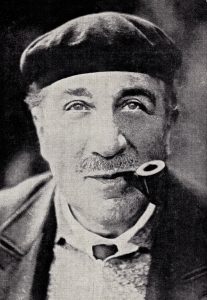Knowing that the earth revolves around the sun doesn’t take us very far, not for happiness, not for wisdom, not for justice. A subtle man, well versed in the sciences, wanted to conclude from this that a lot of fuss was made over Galileo, a lot of fuss over not very much. I want to follow up this idea. It’s clear that Socrates managed very well without knowing that the earth revolves around the sun. The most knowledgeable man of our time does without myriad pieces of knowledge that might interest him. What are the mountains and craters on the other side of the moon? Are there inhabitants of Mars? How many planets revolve around this or that star? Do people think on those planets? Do they make war? Is their geometry the same as ours? We can do without knowledge of such things. What’s more, a lawyer can be ignorant of chemistry. You would raise a laugh if you were to require him to have weighed nitrogen and chlorine before reflecting on inheritances or on party walls. Even a chemist doesn’t know everything about physics. There are three or four mathematicians on the planet who have completed, so to speak, the most difficult ascents and who alone can contemplate certain landscapes of ideas; most human beings, and even most scholars, go without this knowledge and get over it. In short, there is no need to know as much as a Pascal before saying what he thought: “I have gained a lot of knowledge; I can perceive more and yet more ahead; can I name one piece of knowledge that will make me more just, more wise, more human, or simply happier?”

Every thesis is tenable; every thesis contains some truth. I once tested this view at the time of the popular universities, when we swore to discuss everything freely. At this point, a working man, who had taught himself and that with difficulty, asked if I was having a joke, if progress could come through credulous minds, if all truth, proven and explained, is not good, on the contrary, for awakening and arming people’s judgement. But if I undertake to get this same man to understand just the apparent movement of the stars, he finds it all takes too long and asks if true south will guarantee his daily bread and leisure for all workers. Thus a subtle mind will conquer a sceptic. The workers distrust intellectuals and this is quite understandable.
Reasoning is irritating and slippery. We must judge. There is perhaps no single piece of knowledge, I mean supported by solid evidence, which a human being cannot do without. But what is a human being who has never understood anything from solid evidence? Is he or she not like a child faced with the first charlatan or glib talker who comes along? On the contrary, I say that all knowledge is good for awakening the mind, to give it the experience of truth and falsity. Geometry, if you wish. Physics or chemistry, as you will. So that, given a simple example, the mind can distinguish between what is assumed and what is proven. Let it carry out an experiment; let it perceive the source of error and how to avoid it. The triangle, the movement of a pendulum, the fall of a body, boiling point, combustion, the electric motor, anything is good if one learns not to confuse what one believes with what one knows. And so, for real progress, knowing a lot matters less than knowing one or two things very well. And because what matters above all is to reveal to oneself a mind that is open and capable of judgement, you see, I would say to our subtle Jesuit, you see that the trial of Galileo was a great moment, because it laid bare a different way of instruction, one which uses threats, which uses force, which brings forward a troop of soldiers and prison as its evidence. This kind of experience is instructive through ridicule; because a troop of soldiers cannot prevent, as we say, the earth from revolving. Yes, we can be ignorant of the earth’s movement and live a life worthy of a human being. But one is not at all a human being if one believes and follows those who find it natural to use armed men to demonstrate whether the earth revolves or not.
October 6, 1928
English translation copyright © Michel Petheram
To read the French version on this website.

